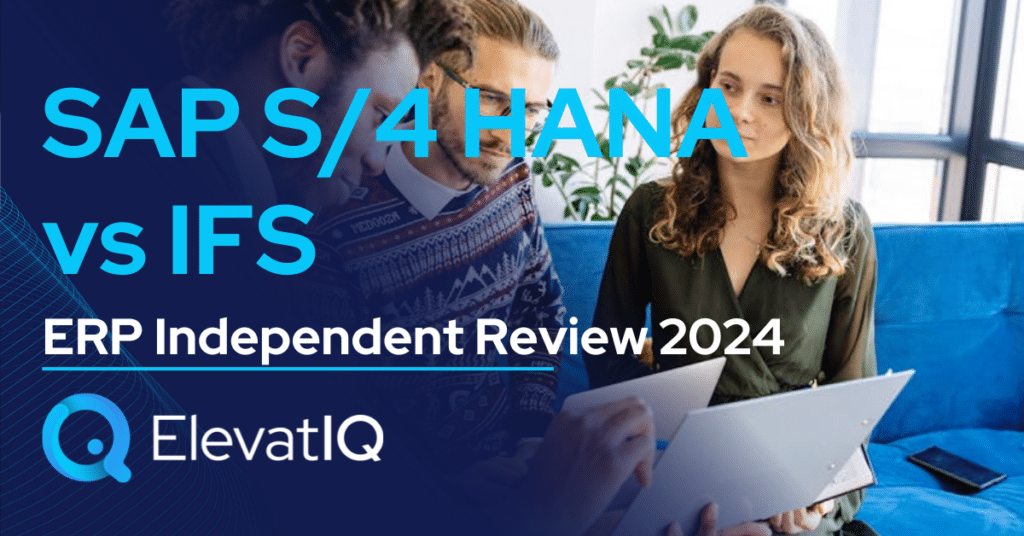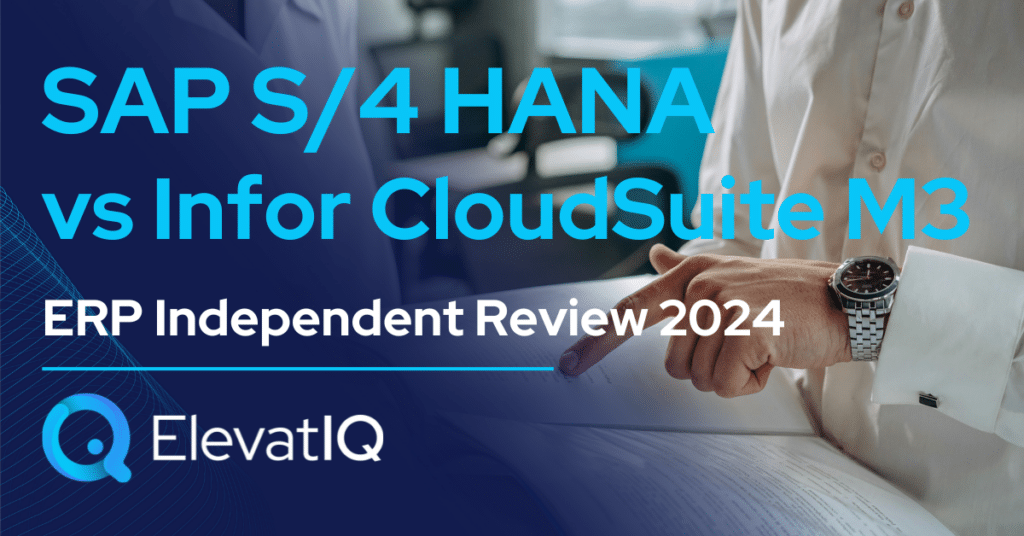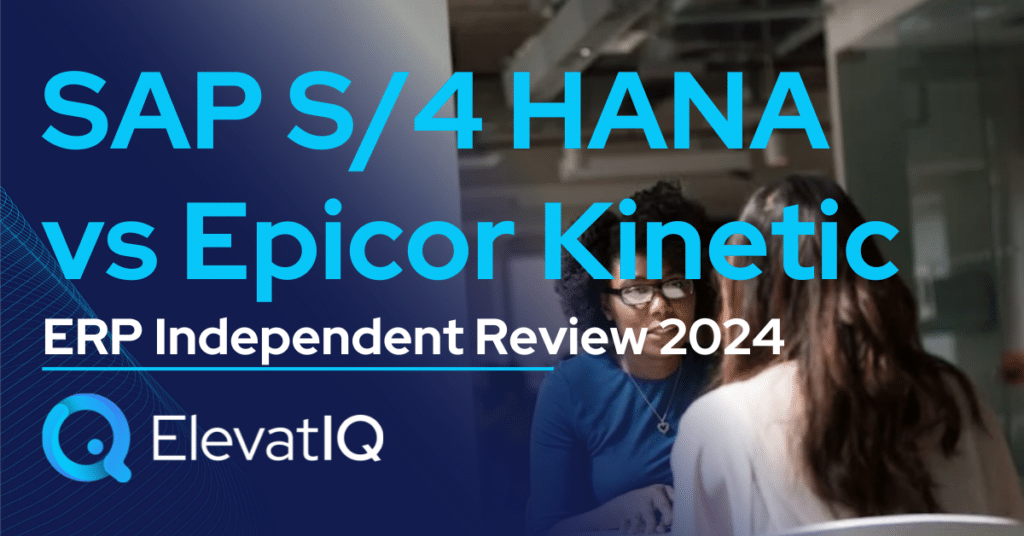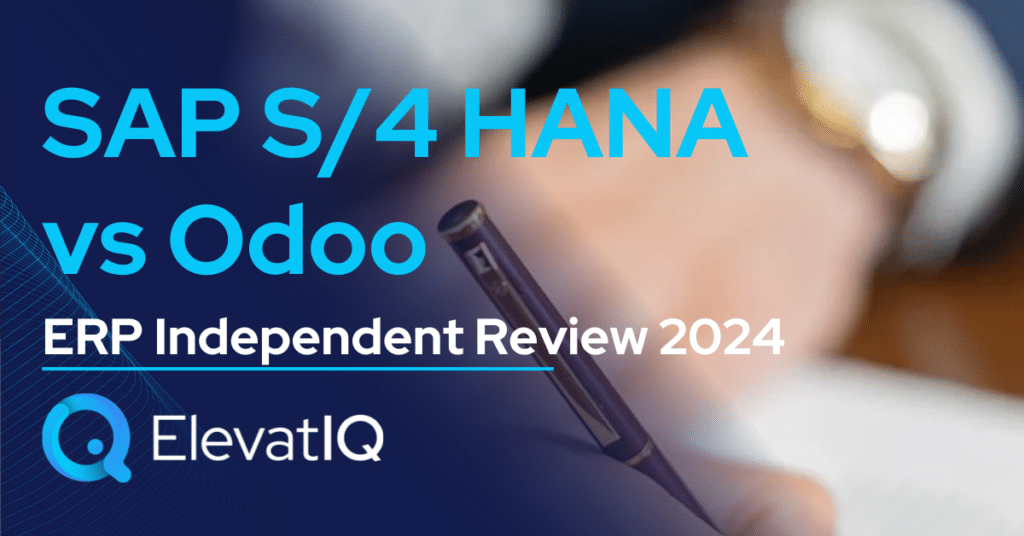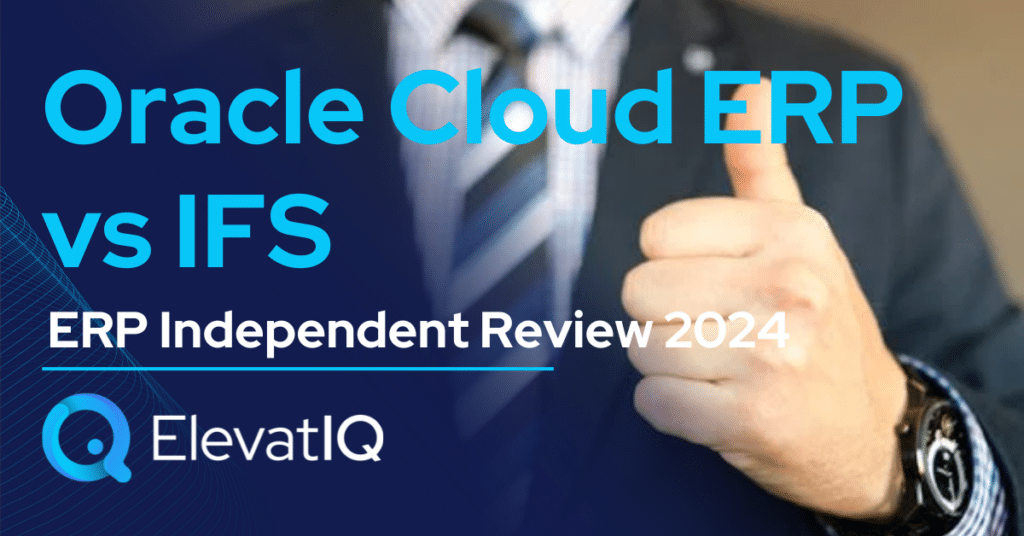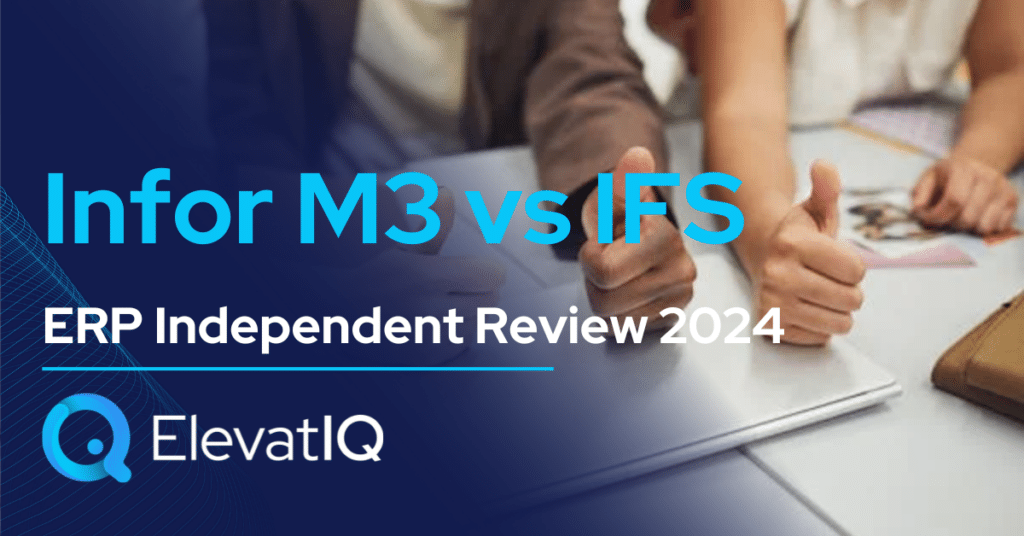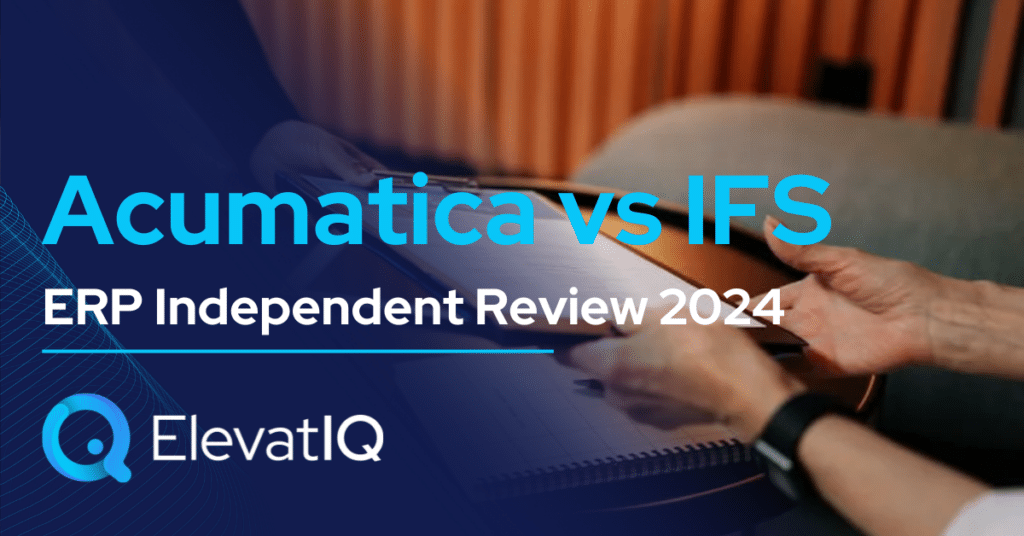SAP maintains its dominance in the ERP market, largely due to its stronghold in the enterprise segment where deals are significantly larger compared to the mid-market. The architecture complementing the SAP S/4 HANA Suite is particularly favored by enterprise-grade companies, offering leading products like SuccessFactors, Hybris, EWM, Ariba, and Concur. On the other hand, similar to other upper mid-market ERP solutions like Infor LN, QAD, or Sage X3, IFS boasts extensive functionality that is tailored for companies heavy in asset and field service operations.
For enterprise companies, SAP S/4 HANA often becomes a default choice due to high transaction volumes, stringent governance, and traceability needs. It particularly shines in product-centric enterprises requiring robust capabilities like MRP and allocation for global workloads. It particularly targets larger companies with revenues exceeding $1B and with a substantial global presence. Whereas, IFS is positioned for companies within the $100M – $1B revenue range, with a significant portion nearing the $1B mark.
SAP S/4 HANA also excels in managing entities across multiple countries within a unified database. On the other hand, IFS boasts robust global, multi-entity capabilities and operates as a cloud-native solution. IFS not only delivers functional capabilities but also efficiently manages the transactional workload of upper-mid-market companies. Therefore, choosing between SAP S/4 HANA vs IFS requires a detailed examination, and this comparison offers valuable insights for ERP selection projects. Let’s delve deeper into the specifics.
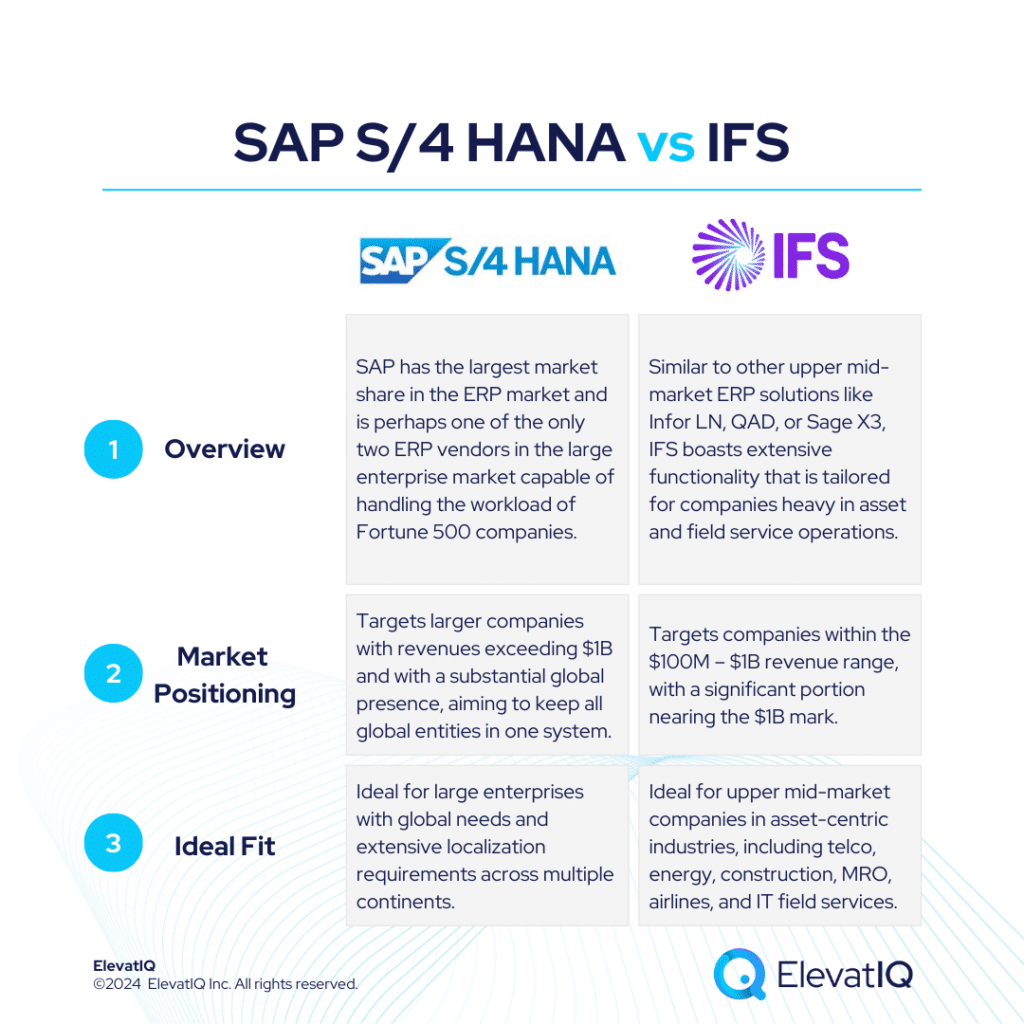

| SAP S/4 HANA | IFS | |
| Started in | Pioneers of ERP | 1986 |
| Ownership by | SAP | EQT |
| No. of customers | 28,000+ | 6,500+ |
What Is SAP S/4 HANA?
SAP S/4 HANA remains the top choice for large enterprises with global needs and extensive localization requirements across multiple continents. In this league particularly, its primary rival is Oracle. While alternatives like Unit4, IFS, or Deltek might handle the workload for larger enterprises, they often lack the robust global compliance and transactional capabilities that SAP S/4 HANA offers. Additionally, SAP S/4 HANA excels in providing superior transactional workflow capabilities that are purpose-built to streamline traceability for large and complex organizations.
Moreover, SAP S/4 HANA is an ideal choice for companies seeking a best-of-breed architecture tailored to the needs of specific functions. This architecture allows for operational cores on different ledgers, which is crucial particularly for larger distribution and 3PL companies managing complex WMS networks. Companies with particularly intricate HCM operations and stringent compliance requirements may find it necessary to integrate a best-of-breed system.
Additionally, for enterprises requiring sophisticated eCommerce platforms with components like CDP or CPQ, SAP S/4 HANA provides the essential capabilities. The flexibility and enterprise-grade best-of-breed architecture particularly makes SAP S/4 HANA a standout solution for such diverse operational needs. The cloud version may also require additional third-party add-ons, similar to NetSuite. Nevertheless, organizations opting for the on-prem version can access superior capabilities, potentially outperforming other ERP systems.
What Is IFS?
Similar to other upper mid-market ERP solutions like Infor LN, QAD, or Sage X3, IFS also boasts extensive functionality. This functionality is particularly tailored for companies heavy in asset and field service operations. Positioned uniquely in the market, IFS also appeals to enterprises seeking mature, industry-specific capabilities, reducing the need for extensive development with vanilla ERP systems like SAP or Oracle. IFS serves as an optimal alternative in the upper mid-market space, offering standalone best-of-breed asset management and also field service capabilities or a comprehensive ERP solution meticulously crafted for asset-centric industries, including telco, energy, construction, MRO, airlines, and IT field services.
The IFS data model also surpasses the complexity of smaller systems like Acumatica or NetSuite, demanding an experienced internal team and external advisory support to successfully align process and data codings with the intricate IFS data model. It is an ideal choice for upper mid-market companies outgrowing smaller systems, such as Acumatica or NetSuite, and requiring mature capabilities for enterprise-wide asset scheduling and maintenance. IFS not only delivers functional capabilities but also efficiently manages the transactional workload of upper-mid-market companies.
IFS boasts robust global, multi-entity capabilities and also operates as a cloud-native solution. The majority of IFS customers particularly fall within the $100M – $1B revenue range, with a significant portion nearing the $1B mark. While IFS has its roots in Europe, they have been trying to grow its presence in North America. In 2023, IFS made strategic acquisitions to enhance its AI and shop floor capabilities.
SAP S/4 HANA vs IFS Comparison
Navigating the choice between SAP S/4 HANA vs IFS is a significant decision for businesses particularly looking for operational efficiency and strategic alignment. Thus, this section delves into the comprehensive comparison of SAP S/4 HANA vs IFS across various critical dimensions.
| SAP S/4 HANA | IFS | |
| Global Operational Capabilities | Deeper multi-entity capabilities. | Has robust global multi-entity capabilities. |
| Diverse Capabilities | Supports diverse business models globally, may require add-ons for deeper operational capabilities. | Companies with a diverse business model, such as manufacturing or expecting changes with the model, might struggle. |
| Best-of-breed Capabilities | Enterprise-grade capabilities with pre-integrated applications supported by SAP, augmented by third-party add-ons. | Has one of the strongest field service and asset management capabilities. |
| Last-mile Capabilities | Limited pre-baked last-mile capabilities for specific micro-industries. | Often require add-ons for specific micro-verticals. |
| Operational Functionalities | Enterprise-grade operational capabilities, limited to industry-specific functionalities. | The operational capabilities would be deeper in some areas, making it a best-of-breed option for enterprise-grade asset and field service-centric use cases used alongside another ERP as a corporate ledger. |
| Integration Capabilities | Lacks out-of-the-box integration with industry-specific PLMs, configurators, and CPQ systems. | Good fit for those seeking best-of-breed field service capabilities for a subsidiary or integrated with a corporate financial ledger. |
| Manufacturing Capabilities | Supports complex manufacturing operations and product models, limited to industry-specific manufacturing functionalities. | Has comparatively limited manufacturing capabilities. |
| Pricing Model | FUE (Full Use Equivalent) | Recurring subscription-based model |
| Key Modules | 1. Financial Management 2. Sales 3. Procurement 4. Manufacturing Management 5. Supply Chain Management 6. Professional Services Automation 7. CRM | 1. Manufacturing 2. Supply Chain Management 3. Projects 4. Finance 5. Human Capital Management 6. Procurement 7. Customer Relationship Management 8. Commerce |
SAP S/4 HANA vs IFS Feature Comparison
Both platforms offer a plethora of features and functionalities designed to streamline business operations and enhance efficiency. In this feature comparison, we delve into particularly the distinct capabilities of SAP S/4 HANA vs IFS across various critical dimensions, providing insights to aid businesses in making informed decisions regarding their ERP selection. Thus, this section discusses features under each of the following modules, particularly financial management, supply chain management, and manufacturing management.
Financial Management Comparison
In this section, we are discussing a detailed comparison of the financial management capabilities particularly offered by SAP S/4 HANA vs IFS. By examining their respective strengths and functionalities, particularly in managing financial processes. Businesses can therefore gain valuable insights to determine the best-suited ERP solution for their financial management needs.
| SAP S/4 HANA | IFS | ||
| Financial Management | General Ledger | Can support the needs of even the most complex financial organizations with more than ten ledger rollups at the country level and conversions. | Centralizes financial data management, enabling accounting, reporting, and analysis. |
| Accounts Receivable and Accounts Payable | Supports global collaboration of customers and vendors, also including shared service model. | Streamlines customer invoicing, payment processes, vendor invoices and payments. | |
| Cash Flow Management | Complex treasury capabilities with the support for global operations, including maintaining treasury KPIs, workflows, and processes for dedicated treasury departments. | Enables accurate planning and forecasting of cash activities, and analyze liquidity and cash positions. | |
| Currency Management | Can support complex currency workflows such as hedging and planning for current impact on different financial statements and accounts globally. | Handles transactions in multiple currencies, automatically calculating exchange rates and converting transactions into the base currency. | |
| Tax Management | Has built-in support for taxes of over 100 countries. | Automates and manages tax calculations, compliance, and reporting across multiple jurisdictions. |
Supply Chain Management Comparison
In this comparison, we explore and analyze the supply chain management capabilities of SAP S/4 HANA vs IFS, shedding light particularly on their respective strengths and weaknesses.
| SAP S/4 HANA | IFS | ||
| Supply Chain Management | Warehouse Management | Supports embedded or standalone architectural patterns and complex business models like 3PL or warehouse value-added services. | Enables businesses to efficiently manage warehouse operations by automating the physical storage and retrieval of inventory items. |
| Service Management | Supports complex quotes and service scheduling workflows particularly for globally operated companies. | Enables organizations to efficiently manage their field service operations, including planning, scheduling, dispatching, and mobile workforce management. | |
| Inventory Management | Accommodates many different business models and inventory types of complex, global organizations. | Provides real-time visibility into stock movements, allowing businesses to maintain optimal inventory levels by setting reorder points and reducing the risk of overstocking and stock-outs. | |
| Purchase Order Management | Manages complex workflows with automated approval rules and multiple hierarchies. | Streamlines the procurement process by automating the creation, tracking, and approval of purchase orders, ensuring efficient and accurate order fulfillment. | |
| Sales Order Management | Manages complex order types tailored to different business models. | Efficiently handles the entire sales order process from quotation to invoicing, ensuring accurate order fulfillment and real-time tracking across multiple sites. | |
| Requisition Management | Manages complex requisition processes of globally complex enterprises. | Simplifies the procurement process by allowing users to create, track, and approve requisitions, ensuring that all purchase requests are efficiently managed and fulfilled. |
Manufacturing Management Comparison
In this comparison, we explore and analyze the manufacturing management capabilities of SAP S/4 HANA vs IFS, shedding light, particularly on their respective strengths and weaknesses.
| SAP S/4 HANA | IFS | ||
| Manufacturing Management | Production Planning | One of the most complex planning capabilities with enterprise-grade strategies to optimize production cycles for global companies. | Optimizes manufacturing processes by providing tools for capacity planning, production scheduling, material requirements planning, and shop floor control, ensuring real-time visibility and efficiency. |
| BOM and Routing | Enterprise-grade BOM scalability for a variety of business models and products. | Streamlines manufacturing by detailing the components and materials needed for production and defining the sequence of operations required to produce a finished product. | |
| Advanced Planning and Scheduling | Enterprise-grade advanced APS capabilities for complex globally distributed planning workloads that need to be collaborated across geographies. | Enhances manufacturing efficiency by optimizing resource allocation, production schedules, and material requirements through advanced algorithms and real-time data analysis. |
Pros of SAP S/4 HANA vs IFS
When evaluating ERP solutions, understanding the distinct advantages of SAP S/4 HANA vs IFS is crucial. In this section, we are particularly exploring the strengths of SAP S/4 HANA vs IFS across various dimensions. Thus, shedding light on their respective capabilities and functionalities.
| SAP S/4 HANA | IFS |
| It is an ideal solution as the corporate financial ledger for global companies with multiple layers of financial hierarchies operating in multiple countries. | One of the most consistent user experiences that have been rearchitected and modernized. |
| The item master, product model, and warehouse architecture can accommodate the needs of most manufacturing business models. | One of the strongest asset-management capabilities for organizations with very thick asset and predictive maintenance needs. |
| Because of the power of HANA, SAP S/4 HANA can process very complex MRP runs with product models containing millions of serial numbers and SKUs, making it much faster than most ERP systems. | Designed to handle large programs where consolidated visibility would be critical without ad-hoc arrangements. |
| Ideal fit for complex operations with its transactional maps capabilities built with the products, making debugging complex financial enterprises easier. | Unique financial workflows to support complex project manufacturing programs. |
Cons of SAP S/4 HANA vs IFS
Just like recognizing strengths is important, it’s also crucial to weigh the specific drawbacks of SAP S/4 HANA vs IFS. Therefore, in this section, we will delve into the limitations and challenges associated with SAP S/4 HANA vs IFS across various operational and financial dimensions.
| SAP S/4 HANA | IFS |
| The controls provided as part of the product may feel unnecessary and also overwhelming for smaller companies. | Has a limited presence in North America and also a lean partner ecosystem. |
| Overbloated financial control processes, such as compliance, allocation, and approval flows, are only necessary for large organizations. | Companies with a diverse business model, might outgrow or struggle with the solution. |
| The data model is overwhelming for smaller organizations outgrowing QuickBooks or smaller ERP systems. | Companies involved with the M&A or the ones part of the PE portfolio might not be the best fit for IFS. |
| Despite advanced financial traceability and technical capabilities, the functional capabilities are not as rich as with its on-prem version. | IFS might not be the best fit to be used just as the corporate ledger for large project manufacturing enterprises. |
Conclusion
In conclusion, selecting between SAP S/4 HANA vs IFS depends largely on a company’s size, industry, and operational needs. SAP S/4 HANA stands out as a robust solution for particularly large enterprises with complex global operations, offering advanced capabilities in financial management, supply chain management, and manufacturing. Its ability to handle intricate business models, multiple ledgers, and also large-scale MRP runs makes it the preferred choice for global companies in various industries. However, its complexity may be overwhelming for smaller organizations, making it a better fit for those needing enterprise-grade functionality and best-of-breed integrations.
On the other hand, IFS excels in serving upper mid-market companies, particularly those in asset-centric industries like telecommunications, energy, and field services. With a strong focus on asset management and also field service operations, IFS is designed for companies that prioritize efficiency in these areas. Its cloud-native architecture and strong global capabilities provide a comprehensive solution for particularly mid-sized companies nearing the $1B mark. While its presence in North America is still growing, IFS offers a compelling alternative for businesses looking for specialized functionality without the complexity of larger ERP systems like SAP S/4 HANA.
Both systems have their strengths and limitations, so businesses should carefully evaluate their specific need. Also, seeking assistance from an independent ERP consultant can significantly aid the decision-making process. To get a 360-degree view of feature comparisons, it’s essential to explore not only SAP S/4 HANA vs IFS but also insights from other analyses such as SAP S/4 HANA vs. NetSuite, Acumatica, Oracle Cloud ERP, Dynamics F&O, Dynamics 365 BC, Infor LN, Infor M3, and Epicor Kinetic.



